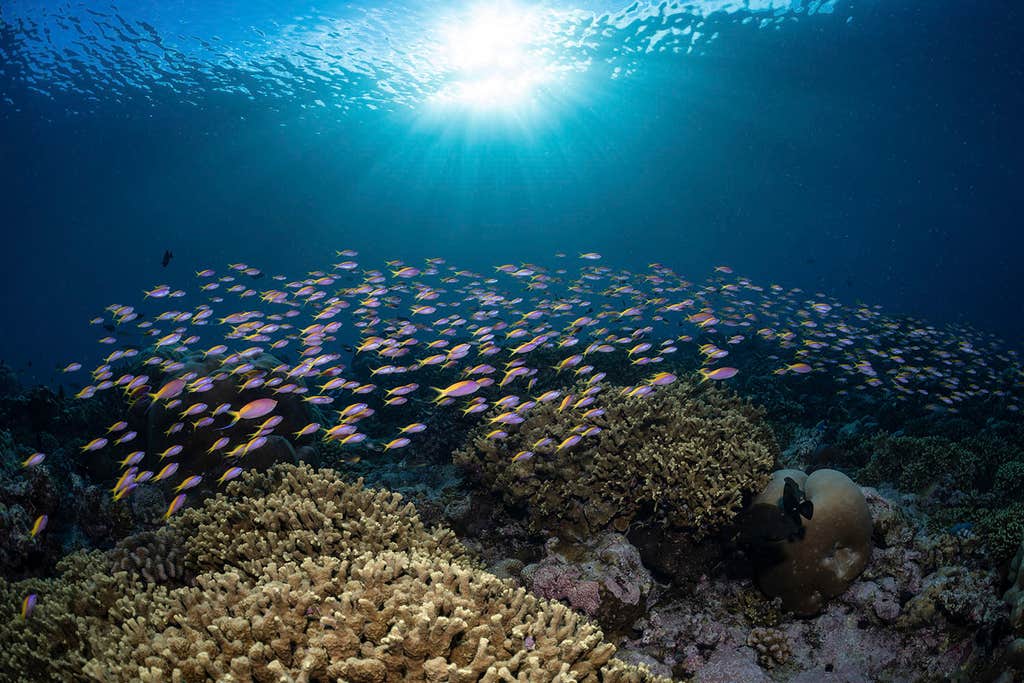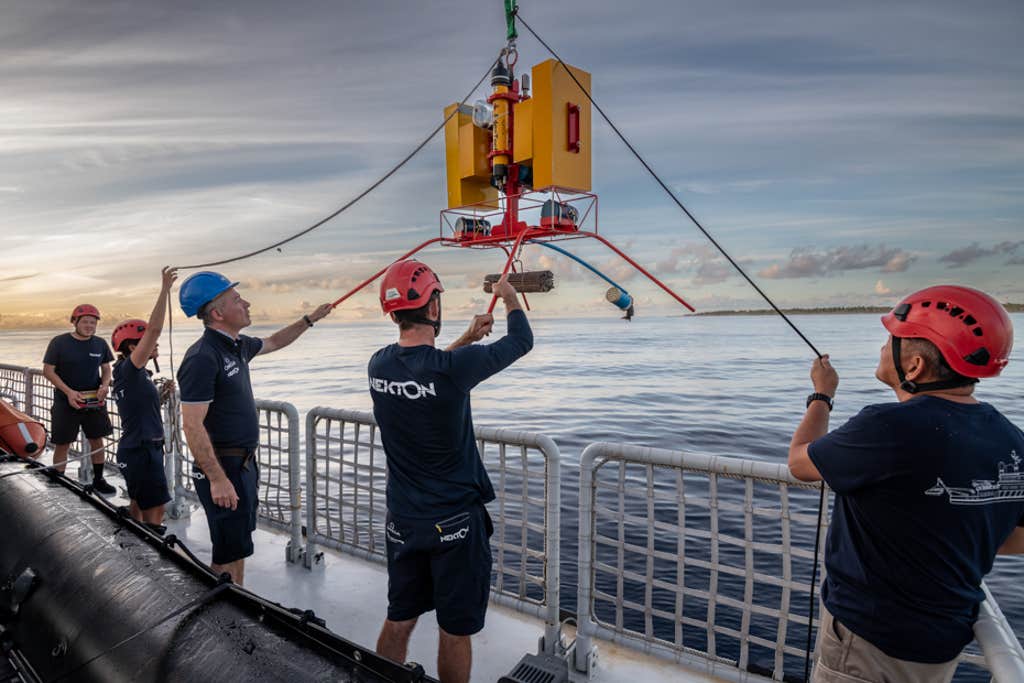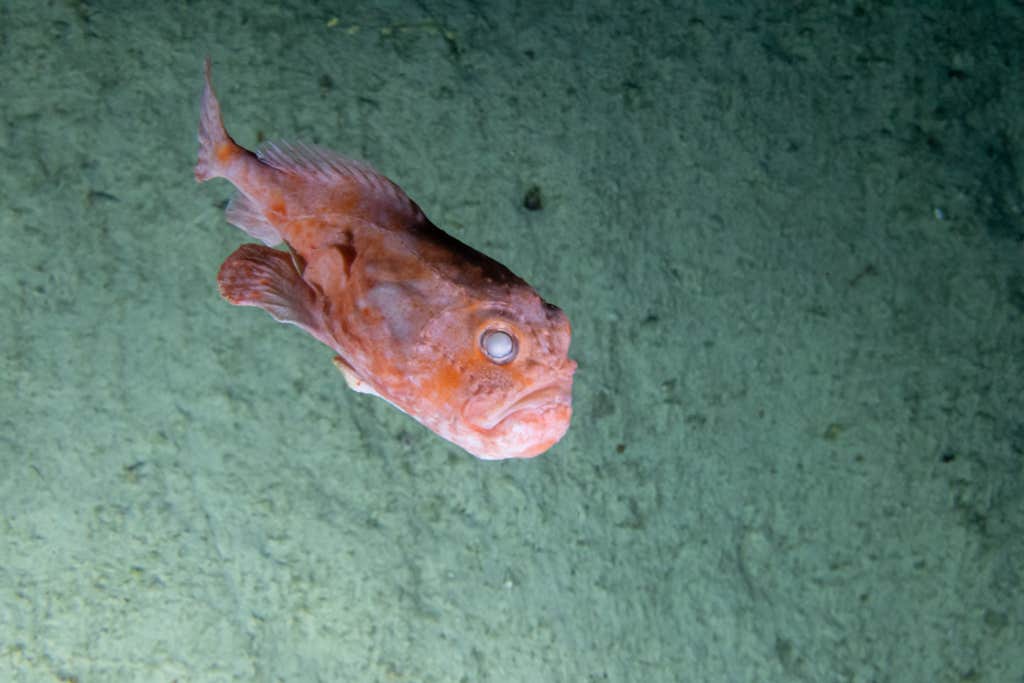The Ocean Census: The largest program in history to discover life in our ocean has been unveiled with the ambitious target of finding at least 100,000 new marine species in the first decade.
Knowledge gathered will revolutionize our understanding of life on Earth and how to protect the ocean—the environment responsible for much of the air we breathe, regulating our climate, and a vital food source for billions.
Scientists believe little more than 10 percent of what lives in our seas has been found and there are around 2 million species still undiscovered. The endeavor, known as Ocean Census, builds on major programm of the past including The Challenger Expeditions (1872-1876, the birth of modern marine science), and The Census of Marine Life (2000-2010).
Ocean Census is a global collaborative initiative, an open network of science, business, media, and civil society organizations joining forces. It has been founded by The Nippon Foundation, the largest non-profit foundation in Japan that focuses on philanthropy through social innovation and Nekton, a United Kingdom-based marine science and conservation institute. The project’s headquarters is in Oxford with the first Ocean Census Biodiversity Centre at the Oxford University Museum of Natural History.
“Ocean life makes all life on Earth possible and holds the wisdom of 4 billion years of our evolution on Earth. We can’t protect what we don’t know exists,” explained Yohei Sasakawa, chairman of The Nippon Foundation. “We have a race against time to discover ocean life before it is lost for generations to come. Ocean Census will create an immense wealth of openly accessible knowledge that will benefit and sustain all life on Earth, for humankind and our planet. Ocean Census is full of dreams and wonder, and cannot be accomplished by the Nippon Foundation and Nekton alone. We would like to unravel the mysteries of the ocean, in collaboration with ocean research institutes, businesses, governments, the public, philanthropy, and civil society,” continued Sasakawa.

For the past 200 years, the work of finding and scientifically describing species (taxonomy) has been a slow, methodical process—the average rate of new species discovery hasn’t changed much since the 1800s. It stands at around 2,000 a year. Traditional taxonomy is unable to meet the challenges of the climate and biodiversity crises that scientists expect will result in the loss of the majority of species on Earth.
“Revolutions in technologies such as digital imaging, sequencing, and machine learning now make it possible to discover ocean life at speed and at scale”, said Alex Rogers, Ocean Census Science Director, “It currently takes one to two years to several decades to describe a new species after it is collected by scientists, but utilizing new technologies and sharing the knowledge gained using cloud-based approaches, it will now only take a few months,” continued Rogers.

Over the coming years, scientists from around the world will embark on dozens of expeditions to the ocean’s biodiversity hotspots to find new life from the surface to full ocean depth. Combining vessels from the philanthropic, government, and commercial fleets, they will be deploying a combination of advanced subsea technologies with divers, submarines, and deep-sea robots.
“The beauty and diversity of marine life in the ocean is still beyond human comprehension, but as we explore and uncover what lies beneath the sea surface, we are constantly awed and delighted by new lifeforms,” said Jyotika Virmani, the executive director of Schmidt Ocean Institute, one of the leading partners of Ocean Census. “Schmidt Ocean Institute is proud to be partnering with Ocean Census to accelerate our understanding of the incredible creatures that inhabit our marine world,” continued Virmani.
Species discovered on expeditions will be sent for high resolution imaging and DNA sequencing in a network of Ocean Census Biodiversity Centres to be established in high, middle, and low-income nations around the world. The first of these will be at the Oxford University Museum of Natural History. Networks of taxonomists will connect virtually to draw on what Professor Rogers and his scientific team calls “Digital Life Forms” to complete species descriptions.
The aggregated, open-sourced data will be added to a network of data centers globally and made freely accessible to scientists, decision makers, and the public.
“This new foundation of knowledge can help advance our understanding of fundamental science—oxygen production, carbon cycling, sustainable food production, the evolution of life on Earth, and even discoveries of new medicine and biotechnologies,” said Mitsuyuki Unno, the executive director of The Nippon Foundation. “Through advancing our understanding of the abundance, diversity, and distribution of life in our ocean, we hope Ocean Census will catalyze global efforts to conserve our oceanm,” concluded Unno.

“We have a short window of opportunity, perhaps the next 10 years, when the decisions we all make will likely affect the next thousand or even 10,000 years,” explained Oliver Steeds, Ocean Census Director, Chief Executive of Nekton. “Some people are saying ‘it’s time to go big or go home.’ We’ve chosen to go big, and we hope the giant leaps in knowledge we can make with the discovery of ocean life, can help put us on a better track toward a positive future for people and the planet,” concluded Steeds.
Ocean Census is particularly timely. The 2022 Montreal Biodiversity Conference made the decision to protect 30 percent of our planet for conservation of life by 2030. Implementation of this ambitious policy in the ocean will need the information provided by Ocean Census to ensure that protected areas are optimally positioned to protect biodiversity. The U.N. Biodiversity Beyond National Jurisdiction treaty agreed in March 2023 means that there is now a legal framework to establish such protected areas in the high seas. Lack of progress on prevention of global warming detailed in the IPCC 2023 Climate Report emphasizes the urgency of action to understand the ocean and its potential responses to climate change as well as potential to mitigate emissions and adaptation through nature-based solutions.![]()
By Carole Scott.
Lead image courtesy of The Ocean Census.






























